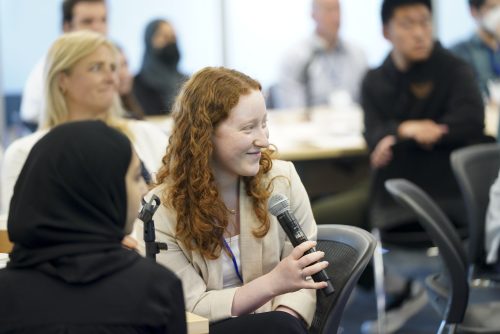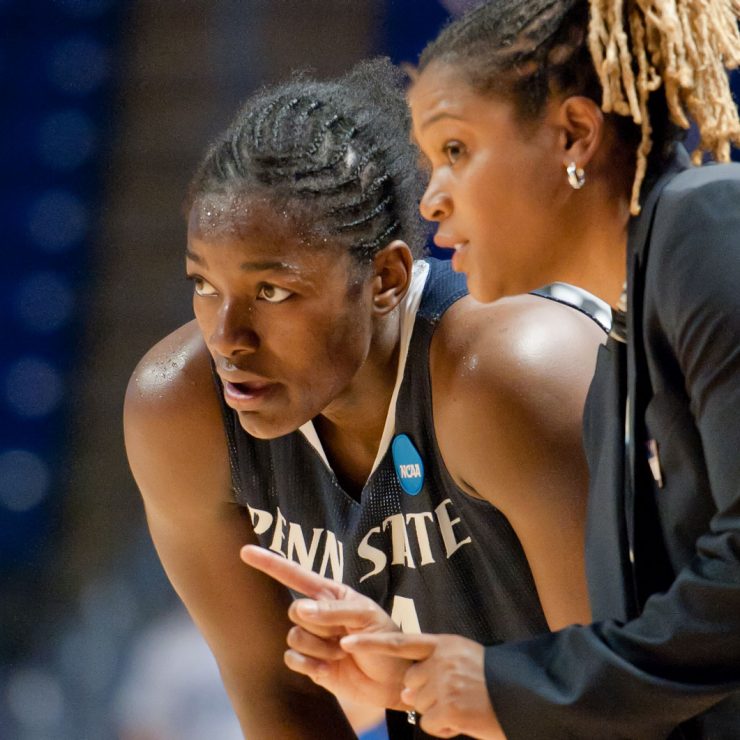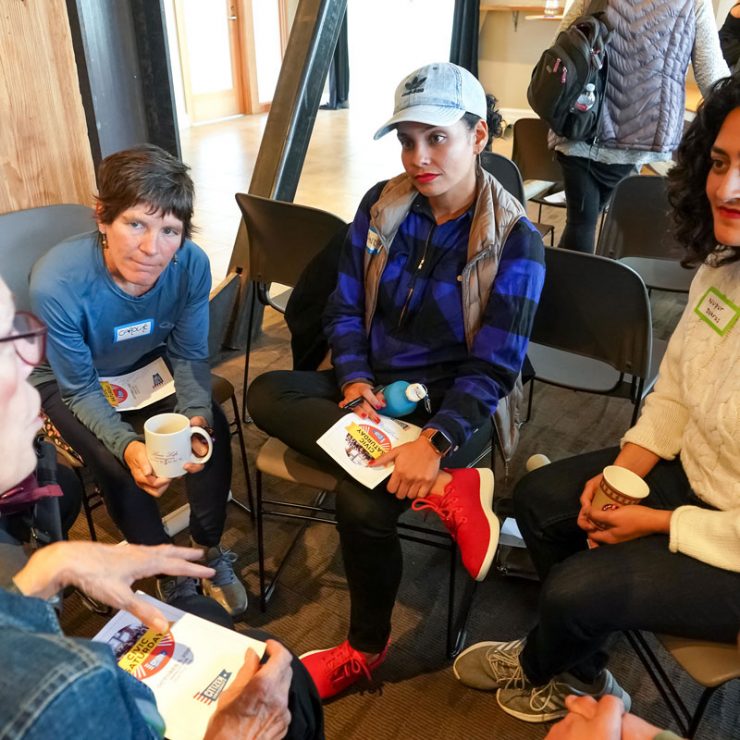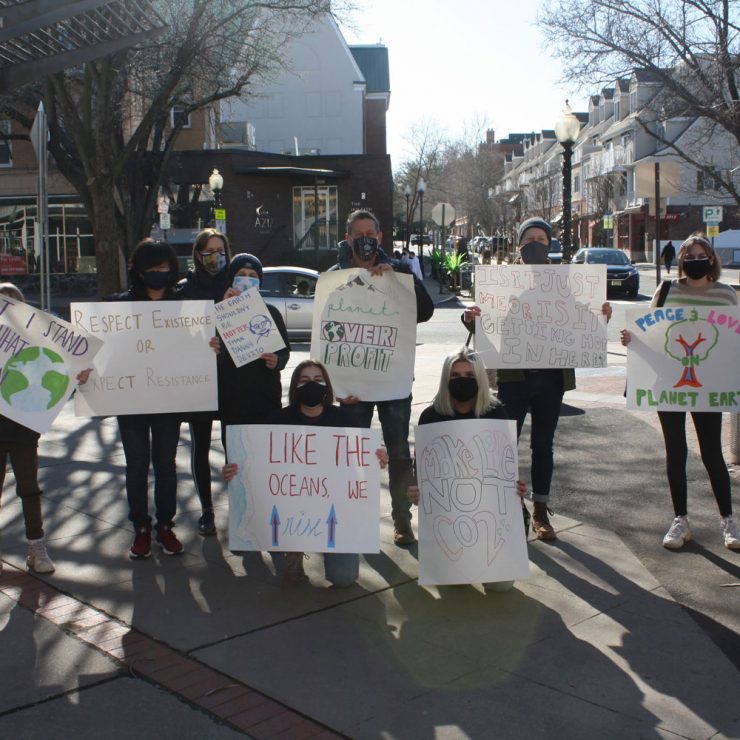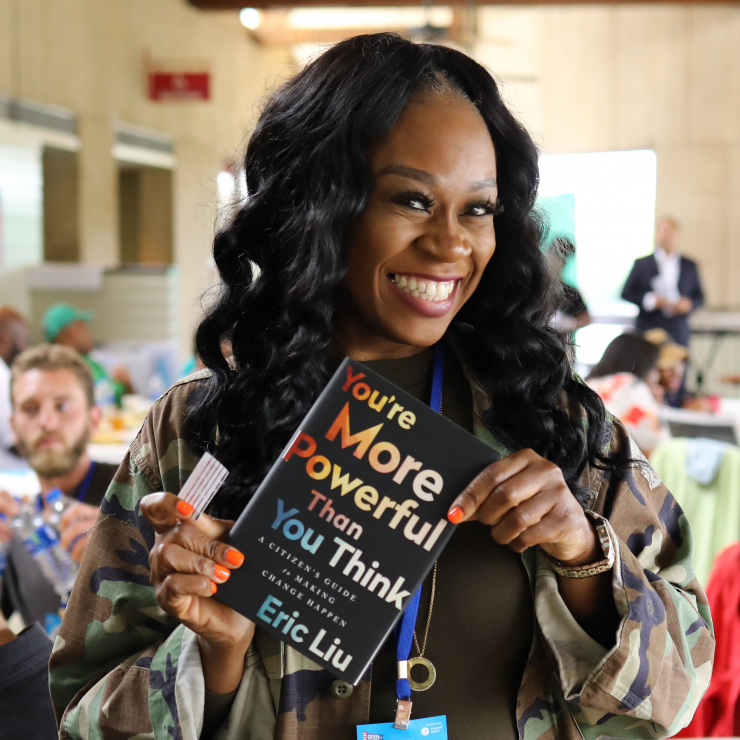I have always been interested in solving local problems but I had had a few failed attempts at starting clubs or volunteer groups. After I was told “no” by teachers and the principal about starting a school debate club, I figured it was pointless and thought I was just too young to make change.
In 2022, I was part of Citizen University’s Youth Collaboratory, which is focused on teaching a group of kids how to access their power and create change in their community by means of a “Power Project.”
I thought people in power would never listen to a fifteen-year-old, so I set aside my change-maker plans for the future. I was incredibly wrong and I hope no one else falls into the same trap as me.
I learned a lot from the Youth Collaboratory but perhaps the most important is that no one is too young, too powerless, or too isolated to make change. We all have power and the difficult part is learning how to access it.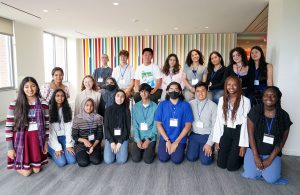
The program was divided into three sections to help us achieve our goals. First, we prepared and learned about power. We read Eric Liu’s book, You’re More Powerful Than You Think, and discussed the laws of power: power compounds, power justifies itself, and power is infinite.
The third law stood out to me. Power is infinite means that just because one person may be seemingly hoarding power, that doesn’t mean it’s a zero-sum game.
One person gaining power does not mean power is being taken from you because there is not a finite amount of power.
One example of this is the Nineteenth Amendment. As women gained the right to vote, men did not lose political power. More power was just distributed. On the same token, you have the ability to give others power without reducing your personal reserve.
This idea stuck with me and I began to think about how I could give people in my community more power.
The second section was planning. We began to think about what our Power Project would be. I realized the best way to help others was through something I knew well and already felt comfortable with. For me, that was books. I decided that by using literature as the medium, I could spark a variety of conversations locally to educate people on topics not commonly talked about.
Over the summer, I founded an intergenerational discussion group called Between the Lines. My mission is to educate community members and foster a community of citizens with the tools to create change. We have members from the post-war generation to Gen Z, so our talks are never predictable and always enlightening. With literature as the medium, we’ve discussed topics ranging from the history of women’s rights to the Great Depression. We invite speakers to educate us even more on the topics in our books and meet at local community centers and libraries.
I am not going to lie — it is difficult to organize meetings and I had not anticipated the amount of planning and email-sending it would take, but it’s been incredibly rewarding. Being able to discuss The Feminine Mystique with a woman who read it when it first came out is an experience I will never forget. At a time when many of the book’s topics are being brought up again, it was meaningful to talk to someone who was there when Roe V Wade was originally fought.
I’m so proud of my fellow cohort members who changed curriculums, started mental health awareness groups, organized medical conferences, led gun violence awareness meetings, and so much more.
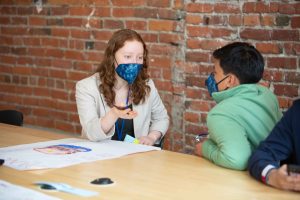
I’m so appreciative of the late-night phone calls I made with cohort members where we brainstormed ideas and drafted emails together. Without their support and kindness, I wouldn’t have known how to convert my passion into action. One thing that helped was talking to community members who’d worked on similar projects. I got help from my school librarian, organizers from my local college, and leaders of community centers.
Everything that I’ve learned from the group has only cemented Eric’s third law. Every time one of us was successful in our own community, the others felt so uplifted that they were able to replicate the other’s success. (Instead of one person’s treasure being another’s trash, each person’s treasure was everyone’s.) The domino effect of change that we all saw was incredibly encouraging and if one of us fell down, the others lifted them up.
I see this same energy reflected at Between the Lines. With every epiphany someone has, everyone is so encouraged to continue learning and talking that they have epiphanies of their own. A striking moment during our discussion was when the high schoolers of the group started talking about how annoyed they were with school dress codes and the oldest member agreed the codes were unfair. It broke their stereotype that members of older generations didn’t sympathize with their frustrations and was a learning moment for us all.
Just as Eric says, “We influence others by letting them influence us, which awakens their sense of responsibility. We create power that is not contrary to compassion and cooperation but is compassion and cooperation” (Liu 190). Sometimes it seems as though there is electricity in the air and the power feels palpable. Throughout it all, I’ve been so grateful for the lessons I’ve learned from people about community, power, and culture.
Ellie Friedman was a member of the 2022 Youth Collaboratory. She lives in upstate New York.
